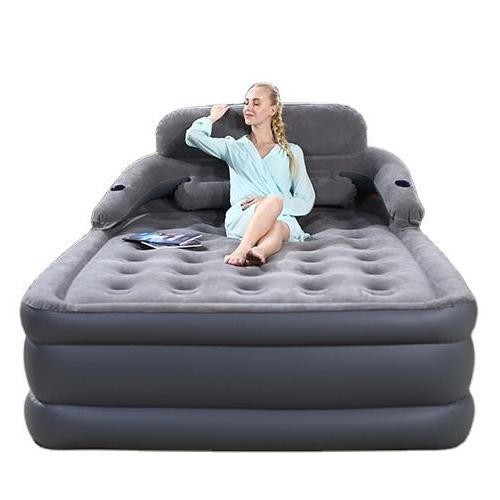When it comes to sleep solutions, air mattresses and air beds are often used interchangeably, but they have distinct features, benefits, and drawbacks that cater to different needs.
Features:Air mattresses are typically inflatable beds made of PVC or similar materials. They are designed for temporary use, making them popular for camping or as a guest bed. Most air mattresses can be easily inflated and deflated, often featuring built-in pumps for convenience.
Portability: Air mattresses are lightweight and easy to transport, making them ideal for outdoor activities or travel.
Cost-Effective: Generally, air mattresses are more affordable than air beds, making them accessible for budget-conscious consumers.
Quick Setup: With built-in pumps, air mattresses can be inflated in minutes, providing a quick sleeping solution.
Durability: Air mattresses are more prone to punctures and leaks compared to air beds, which can lead to deflation during use.
Support: Many air mattresses lack the support and comfort of traditional beds, which may result in a less restful night’s sleep.
Heat Retention: They may not retain body heat well, leading to discomfort in colder environments.

Features:Air beds, on the other hand, are designed for more permanent use and often feature advanced technology such as adjustable firmness settings. They can come with additional features like built-in heating, dual chambers for different firmness levels, and even smart technology for personalized comfort.
Customizable Comfort: Many air beds allow users to adjust the firmness level, providing a tailored sleep experience for individual preferences.
Enhanced Support: Air beds typically offer better back support and can help alleviate pressure points, making them suitable for long-term use.
Durability: Constructed with more robust materials, air beds are less likely to suffer from punctures and can withstand regular use.
Cost: Air beds are generally more expensive than air mattresses, which may not fit everyone’s budget.
Complexity: The advanced features can make setup more complicated, and some models may require regular maintenance or power to adjust settings.
Weight: Air beds are often heavier than air mattresses, making them less portable and more challenging to move.
In summary, the choice between an air mattress and an air bed ultimately depends on your specific needs. If you require a temporary, budget-friendly sleeping solution for occasional use, an inflatable mattress is a practical choice. However, if you're looking for long-term comfort, support, and customization, investing in an air bed may be the ultimate option. Understanding the specific features, benefits, and drawbacks of each will help you make an informed decision that best suits your sleeping needs.
Previous: Choosing the Perfect Shower Screen for a Modern Bathroom
Next: Polylactic Acid (PLA): The Environmentally Responsible Plastic
Copyright:@2020-2021
Comments Please sign in or sign up to post.
0
0 of 500 characters used